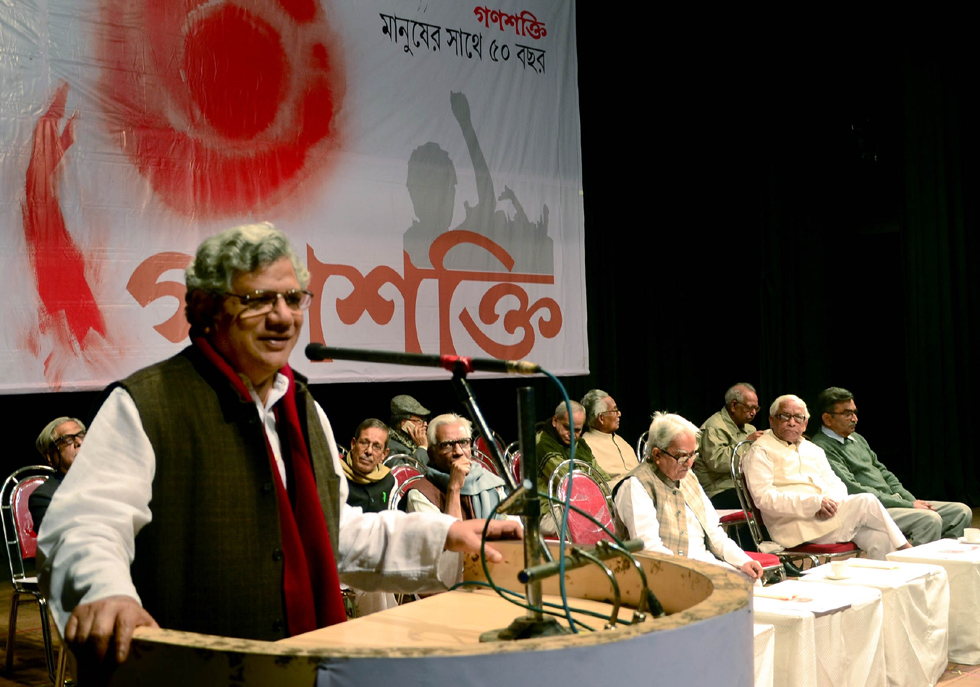
From Our Special Correspondent in Kolkata
CPI(M) general secretary Sitaram Yechury has alleged that Indian media was gradually distancing itself from the reality of the country. Ruling classes have taken nearly total control of the media. Working class and its woes are rarely represented in the mainstream media. There was practically total silence about the all India strike by trade unions on last September 2; media did not even mention a word about the three-lakh strong rally in Delhi. Yechury lamented that farmer suicides and the present famine like conditions in 18 of the 29 states of the country did not make news. The surrender of the BJP government at the WTO discussions or about the carbon emissions is not reported in the media deliberately. People are kept in the dark.
Yechury was addressing a public meeting commemorating the commencement of the 50th year of Ganashakti on January 3. Beginning the journey as an eveninger in 1967 in tumultuous times, Ganashakti has evolved into a mass circulation daily braving all odds. It has maintained its declared pro-working people position fervently. Congratulating the journey, Yechury asserted that Ganashakti is alive because the mass movement is alive in West Bengal. It has shown the path of alternative journalism and people have embraced it as their own newspaper. He reminded that Lenin considered a party paper as a collective propagandist, collective agitator and collective organiser.
Yechury, while reflecting upon the present situation in West Bengal, said that Bengal showed the way and inspired the entire nation in the national struggle through the Bengal Renaissance. Time has come when a second Renaissance is needed in the state. This is particularly needed to ward off the regressive thoughts of the RSS-BJP combine. RSS wants to replace history with mythology and philosophy with Hindu theology. On the other hand, autocratic regime in Bengal has led to decline of the long-cherished values like respect to women. Unless the present regime is ousted in the state, Bengal will not regain its pride and without a better Bengal, a better India cannot be imagined.
Yechury appealed to all sections of thought in Bengal to come forward with determination to save Bengal. Quoting Bertolt Brecht, he said that once the poet was asked during the height of fascism that whether there will be singing during the dark times to which Brecht has answered, “Yes there will be singing about the dark times”.
Surjyakanta Misra, deliberating on West Bengal situation, said, it has become impossible to get justice merely by sit-in or hunger strike now. Only possible way out from this situation is to oust the TMC government. He appealed to all sections of people who have been attacked, victimised and tortured to unite to defeat the government.
Biman Basu recollected the first days of Ganashakti and how it has overcome obstacles one after another in the last five decades. Basu said, the struggle for restoration of democracy in the state has become the focal point now. In the month of January itself, a series of protest actions will take place.
The meeting, with huge attendance, was presided over by Ganashakti editor Naryan Dutta. The redesigned Bengali website of Ganashakti was launched, inaugurated by Surjyakanta Misra. A collection of ten front pages of Ganashakti from these five decades was presented by Buddhadeb Bhattacharjee.


